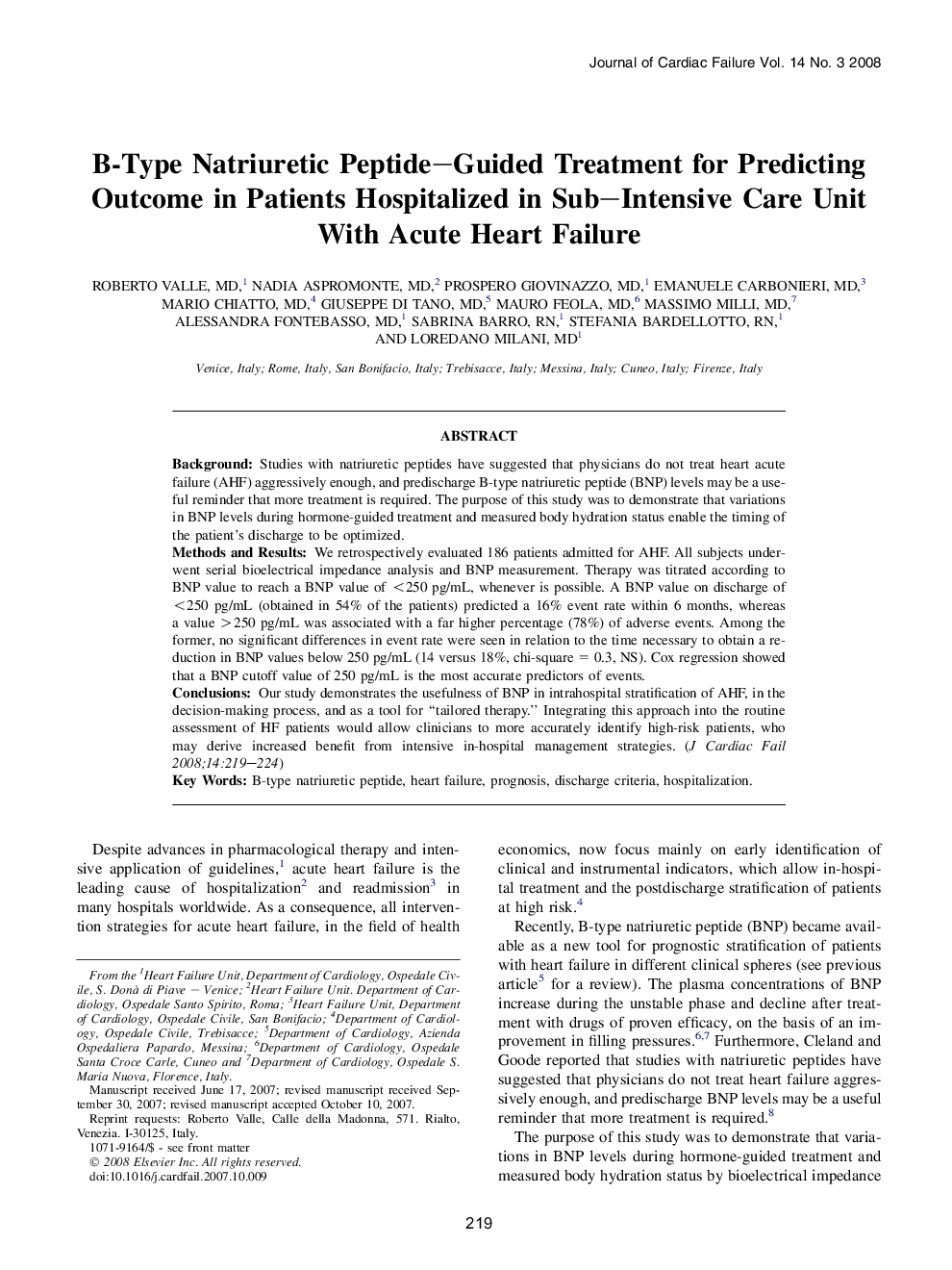| Article ID | Journal | Published Year | Pages | File Type |
|---|---|---|---|---|
| 2961243 | Journal of Cardiac Failure | 2008 | 6 Pages |
BackgroundStudies with natriuretic peptides have suggested that physicians do not treat heart acute failure (AHF) aggressively enough, and predischarge B-type natriuretic peptide (BNP) levels may be a useful reminder that more treatment is required. The purpose of this study was to demonstrate that variations in BNP levels during hormone-guided treatment and measured body hydration status enable the timing of the patient's discharge to be optimized.Methods and ResultsWe retrospectively evaluated 186 patients admitted for AHF. All subjects underwent serial bioelectrical impedance analysis and BNP measurement. Therapy was titrated according to BNP value to reach a BNP value of <250 pg/mL, whenever is possible. A BNP value on discharge of <250 pg/mL (obtained in 54% of the patients) predicted a 16% event rate within 6 months, whereas a value >250 pg/mL was associated with a far higher percentage (78%) of adverse events. Among the former, no significant differences in event rate were seen in relation to the time necessary to obtain a reduction in BNP values below 250 pg/mL (14 versus 18%, chi-square = 0.3, NS). Cox regression showed that a BNP cutoff value of 250 pg/mL is the most accurate predictors of events.ConclusionsOur study demonstrates the usefulness of BNP in intrahospital stratification of AHF, in the decision-making process, and as a tool for “tailored therapy.” Integrating this approach into the routine assessment of HF patients would allow clinicians to more accurately identify high-risk patients, who may derive increased benefit from intensive in-hospital management strategies.
